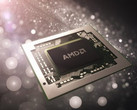The traditional GPU-buying season is nearly upon us. However, with new cards pricing influenced by tariffs, this year may be particularly hard on potential buyers. Factors such as these may push some to the temptation to pick up deals on sites such as eBay. However, this increases the risk of buying a counterfeited card.
Unscrupulous online sellers can sell fake new or second-hand cards by re-flashing their internal chips to appear newer or better in terms of memory capacity than they actually are. Unsuspecting buyers may never figure this out until they try to max their new cards according to their listed specs.
TechPowerUp (TPU) has decided to help customers validate their new purchases with the newest version of the app GPU-Z. This update (v2.12.0) compares the chip-set a given card is supposed to have with the one it actually runs. If the two do not match, the app now adds the prefix '[FAKE]' to the entry in the Name field of its output, as well as a big yellow warning triangle. This function applies to the following NVIDIA chips: G84, G86, G92, G94, G96, GT215, GT216, GT218, GF108, GF106, GF114, GF116, GF119 and GK106. That's not all, however; the update also adds BIOS-saving, per-fan metrics and fan-speed monitoring (in %) for Turing cards to GPU-Z,


 Deutsch
Deutsch English
English Español
Español Français
Français Italiano
Italiano Nederlands
Nederlands Polski
Polski Português
Português Русский
Русский Türkçe
Türkçe Svenska
Svenska Chinese
Chinese Magyar
Magyar












